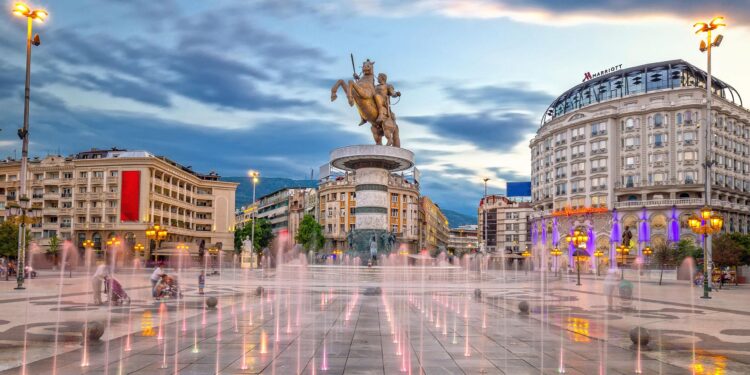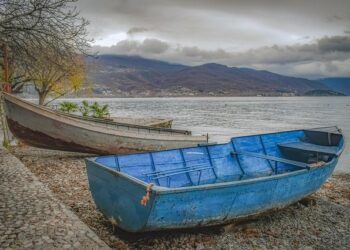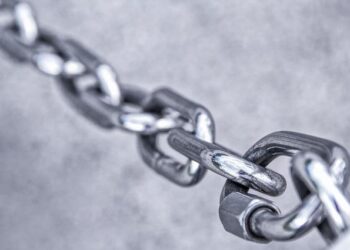Skopje – North Macedonia’s long-awaited bid for full European Union membership has hit a significant roadblock, as ongoing diplomatic tensions with neighboring Bulgaria continue to stall progress. Despite decades of reform and persistent efforts to align with EU standards, the dispute over historical and linguistic issues has prevented the opening of crucial negotiation chapters, casting uncertainty over the country’s EU accession timeline. The impasse not only highlights the complex regional dynamics in the Balkans but also underscores the challenges the EU faces in expanding its membership amid unresolved bilateral conflicts.
North Macedonia Faces Political Deadlock in EU Accession Talks with Bulgaria
Negotiations between North Macedonia and Bulgaria have hit a significant roadblock, complicating the country’s aspirations for full European Union membership. The dispute stems from historical and linguistic disagreements, with Bulgaria demanding recognition of a shared historical narrative and stronger measures against hate speech before allowing further progress in the accession talks. This stalemate risks delaying Macedonia’s anticipated integration into the EU, raising concerns among Brussels officials who had hoped for smoother diplomatic resolutions within the Western Balkans.
Analysts highlight several core issues complicating the dialogue:
- Debates over the interpretation of history and cultural heritage
- Disagreements on minority rights and treatment of ethnic Bulgarians in North Macedonia
- Lack of mutual trust, fueled by nationalistic rhetoric
A recently proposed framework aimed at bridging these differences has been met with skepticism from both sides, signaling that upcoming EU mediation efforts will be critical. Without a breakthrough, North Macedonia’s EU membership timeline remains uncertain.
| Aspect | North Macedonia | Bulgaria |
|---|---|---|
| Historical Disputes | Claims distinct national identity | Seeks recognition of shared history |
| Linguistic Recognition | Asserts Macedonian language is unique | Questions the legitimacy of Macedonian language designation |
| EU Integration Status | Candidate country pending negotiation progress | EU Member State with veto power in accession process |
Historical Disputes and Identity Issues Undermine Progress Toward Membership
Tensions rooted in historical narratives and national identity continue to block North Macedonia’s advance toward EU membership, creating a complex diplomatic puzzle with neighboring Bulgaria. At the heart of the stalemate lies a dispute over historical figures and cultural heritage, with both nations asserting conflicting interpretations of their shared past. This discord has led Bulgaria to place a hold on the opening of accession talks, demanding revisions in educational materials and official declarations from Skopje affirming Bulgarian minority rights. The inflexible stances hinder constructive dialogue, reducing the likelihood of compromise that the EU insists is necessary for moving forward.
The impasse reveals broader challenges faced by the European Union in integrating countries with overlapping histories and contested identities. Experts highlight that beyond political posturing, the issue touches on national pride and collective memory, making it particularly sensitive. Key points fueling the controversy include:
- Disputed historical figures: Claims over heroes and cultural icons that both sides regard as their own.
- Language and minority recognition: Bulgaria’s demand for explicit recognition of Bulgarian minority rights within North Macedonia.
- Textbook revisions: Calls for alterations to North Macedonia’s history books to better reflect Bulgaria’s perspective.
| Issue | North Macedonia’s Position | Bulgaria’s Demand |
|---|---|---|
| Historical Interpretation | Distinct national heritage | Shared historical roots emphasized |
| Minority Rights | Recognition of ethnic groups without Bulgarian minority acknowledgment | Explicit protection of Bulgarian minority |
| Educational Content | Curriculum reflects current national narrative | Revision to include Bulgarian historical perspectives |
Experts Call for Renewed Dialogue and Regional Cooperation to Break the Stalemate
Amid growing frustration over the diplomatic deadlock, leading analysts and policymakers emphasize that revitalizing constructive dialogue between North Macedonia and Bulgaria is essential to unlock progress in EU accession talks. Experts argue that focusing on shared historical and cultural ties could bridge longstanding grievances and pave the way for mutual trust. Without renewed communication efforts, the stalemate risks further destabilizing regional cooperation and casting doubts on the European Union’s enlargement strategy in the Western Balkans.
To foster meaningful breakthroughs, several proposals have emerged centered on enhanced regional partnerships and structured frameworks for ongoing engagement. Key recommendations include:
- Establishment of a joint historical commission to address contentious narratives
- Regular high-level meetings to monitor and support reform milestones
- Increased involvement of EU mediators to facilitate negotiations
| Proposed Measure | Expected Outcome |
|---|---|
| Joint Historical Commission | Mutual understanding & reconciliation |
| High-Level Meetings | Improved communication & transparency |
| EU Mediation Role | Impartial facilitation & conflict resolution |
Insights and Conclusions
As North Macedonia’s bid for full European Union membership remains stalled amid ongoing disputes with Bulgaria, the prospect of resolution appears uncertain in the near term. With both sides entrenched in their positions over historical and linguistic disagreements, EU accession talks face significant hurdles. The development leaves North Macedonia’s European future in limbo, underscoring the complex interplay of regional politics and diplomatic negotiations that continue to shape the Western Balkans’ integration into the bloc.
















